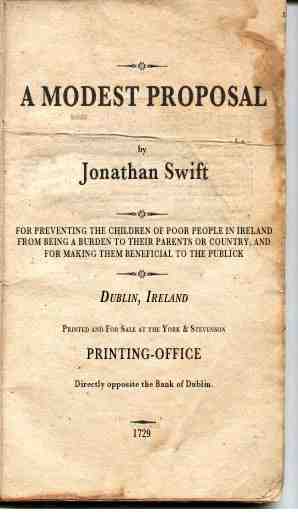 A little while ago, I noticed a timely opportunity to write about a city I know well (let’s call it Destination X). I pitched a few ideas to a National Newspaper Travel Editor contact (let’s call him NNTE 1). He accepted one. He also put me onto a colleague of his in the Features section of the same newspaper, who accepted another. Woohoo – two commissions to write about Destination X.
A little while ago, I noticed a timely opportunity to write about a city I know well (let’s call it Destination X). I pitched a few ideas to a National Newspaper Travel Editor contact (let’s call him NNTE 1). He accepted one. He also put me onto a colleague of his in the Features section of the same newspaper, who accepted another. Woohoo – two commissions to write about Destination X.
I approached the relevant tourist board and requested a return flight to Destination X plus hotel accommodation for me to do my research. They got the ball rolling. All totally standard practice – nothing out of the ordinary yet.
As freelancers will know, though, two commissions are rarely enough to make a living. So I pitched another idea from Destination X to a different National Newspaper Travel Editor (NNTE 2), who is responsible for that newspaper’s online travel content. He liked it, but said there was no budget to pay me for it.
Modest proposal
So I suggested an alternative. Instead of having the newspaper pay me to write about Destination X, how about if I asked the tourist board to pay me instead? It wouldn’t be ‘advertorial’ – where a travel article (or whole section) is sponsored by a tourist board or travel company who dictate what gets written. All my research and writing would be done alone as normal and I would file directly to the editor – but the tourist board would foot the bill for my time and, erhmm, expertise. Result: the paper gets great content from which it can generate revenue, I get paid and Destination X gets coverage – all happy, right?
Nope. My modest proposal was rejected out of hand. NNTE 2 saw it as tying him to the tourist board. It was a ‘no’ on principle.
So I took yet another pitch about Destination X to a different National Newspaper Travel Editor. NNTE 3 liked the idea and was happy to run it – it tied in nicely with a similarly themed article from the same region that was already in his schedules – but again had no budget to pay me. I suggested the alternative payment method, but again it was refused on principle.
Principles
I wonder, though, what principle is at stake. Newspapers have no (or very little) money to pay for travel articles. NNTE 3 told me he now runs only one freelance piece a week, if that. Other newspapers commission nothing from freelancers at all anymore, running only “What I Did On My Holidays” articles written by celebs, staffers from other sections of the same newspaper and authors with a book to plug. Almost all seem to lament losing the insight, the expertise and the sheer variety of freelance content – but their hands are tied.
Yet I think both NNTEs I approached thought my payment idea risked undermining their credibility. I wonder, with respect all round, how much of that is left. Opening one recent national newspaper travel section, you got a welcome message from the boss of a tourist board followed by a dozen articles praising his region – including the likes of How Great It Is To Walk In The [X] Hills footed by a paragraph mentioning that [X] Railways serves all the destinations mentioned in the article, and underlined by a chunky banner advert for, oh, [X] Railways.
I’m not questioning any individual journalist’s integrity – or the necessity for that newspaper to seek funding through sponsorship – but I wonder how much credibility the public gives to such material. It was, effectively, a brochure in newspaper form. Handy for a spare weekend, but Woodward & Bernstein it ain’t.
Editorial independence
The key point of principle rests on the newspapers’ reputation for editorial independence. That, traditionally, has depended on their ability to fund their businesses through interspersing editorial with advertising. That model is now under severe threat.

How to pay the piper?
So far so bad. Yet with travel advertorial, the tail has begun wagging the dog. Companies with a vested interest are starting to be able to dictate terms. With the ongoing financial reshaping of the industry, editorial independence is dangerously threatened.
Putting an end to advertorial – by disconnecting the right of the journalist to get paid from the payer’s being able to control what is written – seems to me to be an innovative and effective route back to integrity and independence.
NNTE 2 queried what would happen if he didn’t like the piece I wrote and chose not to run it. Perhaps he thought he’d be in hock to the person paying my fee. But he – as now – would have no contact, and certainly no relationship, with the tourist board or travel firm paying me. If the story isn’t good enough to run, I simply wouldn’t get paid – but I would then be free to take it elsewhere. Since it would have no price-tag attached, the chances of one or other newspaper/magazine somewhere in the world picking it up for publication would be much higher than at present, where a ‘killed’ story is effectively dead in the water. I would then go back to my fee-payer and renegotiate.
Would a tourist board with extra-deep pockets be able to dictate to a writer what they should write about? Anything’s possible – but any journalist worth their salt would know when they’re being fed a line and would reject it for the sake of their own reputation, and (more to the point) any editor worth theirs would be able to detect a whitewash instantly. Tourist boards and travel firms already heavily subsidise the writing of most travel journalism, with literally thousands spent behind the scenes on a single article for air tickets, hotels, tours, guides and activities. Does it matter where the final, relatively insignificant cash fee to the journalist comes from?
In an industry unable to pay its suppliers, securing outside funding while safeguarding quality could actually put everybody on their toes and, in effect, raise standards. Suddenly, travel journalists would be motivated to double-check their sources. Reputations would be at stake.
Into the abyss

(Credit: myopera.com)
Travel journalism is staring into the abyss. The economics of the industry don’t really work, and haven’t done since newspapers started to rely on travel firms to facilitate creation of content instead of paying to send their own travel journalists abroad. With a shrinking world having reduced the experiential gap between writer and reader to almost nothing, travel journalists – unfairly – have a reputation as just another breed of fat-cats, swanning about being showered with freebies by travel companies and airlines in return for writing more or less bland holiday reports. The quid-pro-quo editorial models currently in place – airline gives journo ticket; journo namechecks airline in return – perpetuate that myth. Overtly sponsored advertorial doesn’t help.
Since newspapers are increasingly unable to pay for professionally produced, independent travel content, I thought my modest proposal to have someone else cough up might work. Clearly, I was wrong. But some alternative system has to be invented soon. I’m old-fashioned enough to think that people still appreciate well-written, insightful, long-form travel journalism – writing that is closer in spirit to the foreign pages than the lifestyle supplement. If I’m right, but the newspapers won’t pay for it, who will?
Footnote
No sour grapes, by the way. I think NNTE 2 and 3 have missed an opportunity, but that’s OK; I can appreciate that now is perhaps not the time to be testing new models on an ad-hoc basis. I’m talking to both of them about other ideas. Meanwhile, anyone thinking of trying to start out in travel journalism should be aware that I also spoke to NNTE 4 (no freelance budget; staffers only), NNTE 5 (Destination X is too far down our wishlist), NNTE 6 (no freelance budget)… It’s a jungle out there. NNTE 1 has my full attention.